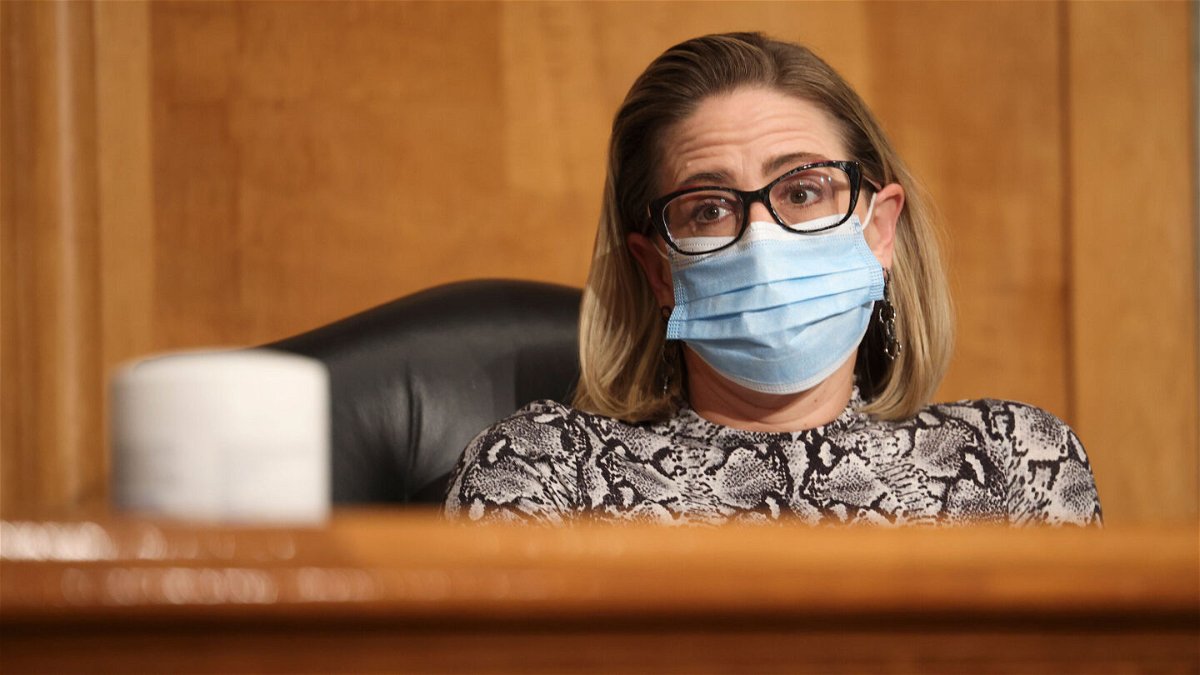Senate Democrats reach agreement on prescription drug prices

Under fire for jettisoning plans to address prescription drug prices in the Democrats' sweeping spending package
By Tami Luhby, CNN
Under fire for jettisoning plans to address prescription drug prices in the Democrats’ sweeping spending package, Senate Majority Leader Chuck Schumer announced Tuesday that an agreement has been reached to lower drug costs.
The deal would empower Medicare to negotiate prices of certain costly medications administered in doctors’ offices or purchased at the pharmacy, according to a document circulated by Schumer’s office. Drugs wouldn’t be eligible until they were outside their initial exclusivity periods — nine years for many, 12 years for others.
Medicare would negotiate up to 10 drugs, starting in 2023, with prices taking effect in 2025. The number would rise to up to 20 medications starting in 2028. This is a far more limited proposal than the one Democratic leaders in the House have backed.
The Senate deal would also impose a tax penalty if drug companies increase their prices faster than inflation, according to the White House. Half of all drugs purchased at pharmacies exceeded that threshold, according to a Kaiser Family Foundation report.
And it would redesign Medicare’s Part D drug plans so that seniors and people with disabilities don’t pay more than $2,000 for medications bought at the pharmacy.
The agreement would also cap what Americans pay for insulin at $35 a month, according to Democratic Sen. Ron Wyden of Oregon, who has worked on drug price legislation for years.
“Fixing prescription drug pricing has consistently been a top issue for Americans year after year, including the vast majority of both Democrats and Republicans who want to see it change because they simply cannot afford their medications,” said Schumer, noting that the $1.75 trillion reconciliation bill could come to the floor of the Senate the week of November 15 if the House passes it this week.
Moderate Democratic Sen. Kyrsten Sinema of Arizona, who helped tank the party’s original plan to allow Medicare to negotiate the prices of certain drugs, affirmed her support for the new deal.
“The senator welcomes a new agreement on a historic, transformative Medicare drug negotiation plan that will reduce out-of-pocket costs for seniors — ensuring drug prices cannot rise faster than inflation — save taxpayer dollars, and protect innovation to ensure Arizonans and Americans continue to have access to life-saving medications, and new cures and therapeutics,” Sinema’s office said in a statement.
Despite the deal’s narrower parameters, the pharmaceutical industry’s main lobbying group said that it would “upend the same innovative ecosystem that brought us lifesaving vaccines and therapies to combat Covid-19.”
“Under the guise of ‘negotiation,’ it gives the government the power to dictate how much a medicine is worth and leaves many patients facing a future with less access to medicines and fewer new treatments,” said Stephen J. Ubl, CEO of PhRMA.
The agreement is not as broad as the initial measure supported by many, though not all, Democrats in the House.
“While not nearly as expansive as we had originally proposed, I’m hopeful the agreement’s new inflation rebate and out-of-pocket cap for seniors will work in tandem with Medicare’s negotiation authority to meaningfully lower prescription drug costs for Americans,” said Energy and Commerce Committee Chairman Frank Pallone, Jr., a Democrat from New Jersey.
House Speaker Nancy Pelosi, who has pushed to allow Medicare to negotiate, said she was “pleased” with the compromise.
The deal would likely produce lower savings than the House proposal, which lawmakers said could offset as much as $700 billion in spending.
“But, it sets a significant precedent for a federal role in drug prices,” tweeted Larry Levitt, executive vice president for health policy at Kaiser.
The initial proposal called for requiring the Health and Human Services secretary to negotiate maximum fair prices of at least 50 and as many as 250 high-cost medications that lack competition, including insulin. The price would have been available to Medicare beneficiaries and to individuals enrolled in group health plans.
The House passed a similar bill in 2019, but it went nowhere in the Senate, which was controlled by Republicans at the time. It would have lowered spending by $456 billion, according to a Congressional Budget Office estimate.
Though the Democrats now lead both chambers, not every member has been on board with what would be a historic change to Medicare.
Signs of trouble were evident when the House was crafting the massive budget reconciliation bill in September. A small group of Democrats voted against key drug pricing provisions in two separate committee markups. The proposal was ultimately approved in the Ways and Means Committee, but leadership can only afford to lose three Democratic votes for bills to pass the full chamber.
Reaction to the deal’s announcement was mixed across patient advocacy groups, with some calling it a big advance and others only a step forward.
“Preventing prices from rising faster than inflation and adding a hard out-of-pocket cap to Part D will provide real relief for seniors with the highest drug costs,” said AARP CEO Jo Ann Jenkins, of the limit to spending at the pharmacy.
But Robert Weissman, president of Public Citizen, said that the new agreement fails to fully empower Medicare to negotiate prices.
“This agreement falls short of what Americans want and deserve to stop Big Pharma price gouging, but it is a positive step forward nonetheless,” Weissman said, based on terms reported earlier Tuesday.
This story has been updated with additional developments.
The-CNN-Wire
™ & © 2021 Cable News Network, Inc., a WarnerMedia Company. All rights reserved.
CNN’s Morgan Rimmer and Manu Raju contributed to this report.